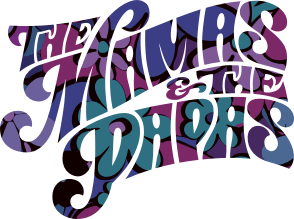Check out the original article at Best Classic Bands.
The song, credited to the group’s husband-and-wife co-founders John and Michelle Phillips, chronicles the events leading up to the 1965 creation of the Mamas and the Papas, which also included Cass Elliot and Denny Doherty. The lyrics are stocked with names and places, some of which may have been (and still are) unfamiliar to fans of the group. We’ll break it down.
First, there’s the song’s title. Creeque (pronounced creaky) Alley is a real place, one of a series of alleys (actually named Creeque’s Alley and owned by the Creeque family) on the docks on St. Thomas in the Virgin Islands. The soon-to-be members of the Mamas and the Papas spent time there shortly before changing their musical direction and taking on their new name. There they were still performing folk music, at a club called Sparky’s Waterfront Saloon, and basically trying to make ends meet and figure out their futures.
The song’s story line only makes passing reference to the Mamas and the Papas’ time on the island though, and never mentions Creeque Alley by name. It starts in the years leading up to the seemingly preordained coalescence of the four singers.
The first line, “John and Mitchy were getting’ kind of itchy just to leave the folk music behind,” refers to John and Michelle’s activities as folk singers in the early ’60s. John Phillips, then 26, had been singing with a folk group called the Journeymen when he met 17-year-old Michelle Gilliam during a tour stop in San Francisco. They fell in love and, after John divorced his first wife, married on Dec. 31, 1962, moving to New York where they began writing songs together while Michelle did modeling work to earn some cash. By late 1964, with the rock scene exploding, John and Michelle had become, like many others, “itchy” to move away from folk. It wasn’t all that easy, they quickly discovered, and the couple, along with Doherty formed the New Journeymen in the meantime. (Trivia note: Early New Journeymen member Marshall Brickman, who was replaced by Doherty, went on to co-write some of Woody Allen’s best-known films and won an Oscar for Annie Hall.)
The first verse leaves off with a name-drop of the fourth member of the Mamas and the Papas: “And no one’s gettin’ fat except Mama Cass.” Cass Elliot (born Ellen Naomi Cohen), originally from Baltimore, she also had a background in folk music when she came to the attention of the other folkies in the song. She’d sung in a trio called the Big 3 with Tim Rose and Cass’ husband, James Hendricks (not to be confused with New York scene regular Jimi Hendrix), but like the others she saw the proverbial writing on the wall and wanted to expand her range of music. The “gettin’ fat” remark has a double meaning, however: not only was Elliot physically large but she was the only future M&P member who was making a decent living with her music, singing jazz in the Washington, D.C., area.
The second verse begins with a couple of mutual compliments: “Zally said, ‘Denny, you know there aren’t many who can sing a song the way that you do, let’s go south.’ Denny said, ‘Zally, golly, don’t you think that I wish I could play guitar like you?’” And so they headed south from Canada, soon finding themselves at a popular club in New York’s Greenwich Village: “Zal, Denny and Sebastian sat (at the Night Owl), and after every number they’d pass the hat.” (More trivia: The Night Owl would become the home base of the Lovin’ Spoonful, Sebastian and Yanovsky’s group, and much later on would be the site of the famed New York record store Bleecker Bob’s.)
Meanwhile, McGuinn and McGuire were “still a-gettin’ higher in L.A.” and Mama Cass was still “gettin’ fat,” but no one had yet found their destinies.
Verse three gives us some more background on Cass’ run-up to joining the group. She was planning to attend college at Swarthmore, the song says, but instead hitchhiked to New York to see if she could make it in the music world. (Trivia note: Cass never planned to go to Swarthmore—she wanted to attend Goucher College near her hometown of Baltimore. But John Phillips needed a rhyme so he used sophomore and Swarthmore.) Upon her arrival in NYC, she met Denny Doherty and fell in love with him.
“Called John and Zal and that was the Mugwumps” adds the next piece to the puzzle: The Mugwumps were a folk quintet formed in 1964 featuring Elliot, Doherty, Sebastian, Yanovsky and Hendricks. (The John here refers to Sebastian, not Phillips.)
The Mugwumps recorded enough material to be compiled into an album in 1967, which did not feature Sebastian, but the group was short-lived as its members were also “itchy to leave the folk music behind.” The next verse ties up the loose ends and takes us to the point where everyone is on the verge of fame: “Sebastian and Zal formed the Spoonful; Michelle, John and Denny getting’ very tuneful; McGuinn and McGuire just a-catchin’ fire in L.A., you know where that’s at.”
